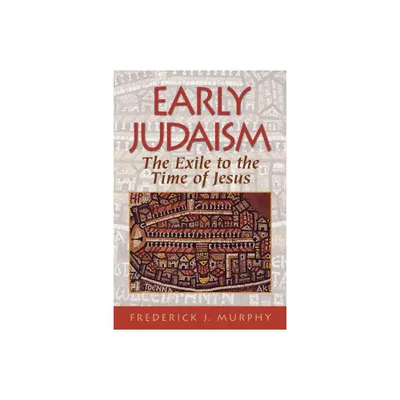Home
Embodiment of Divine Knowledge Early Judaism
Loading Inventory...
Barnes and Noble
Embodiment of Divine Knowledge Early Judaism
Current price: $180.00


Barnes and Noble
Embodiment of Divine Knowledge Early Judaism
Current price: $180.00
Loading Inventory...
Size: Hardcover
*Product Information may vary - to confirm product availability, pricing, and additional information please contact Barnes and Noble
This book explores the early Jewish understanding of divine knowledge as divine presence, which is embodied in major biblical exemplars, such as Adam, Enoch, Jacob, and Moses.
The study treats the concept of divine knowledge as the embodied divine presence in its full historical and interpretive complexity by tracing the theme through a broad variety of ancient Near Eastern and Jewish sources, including Mesopotamian traditions of cultic statues, creational narratives of the Hebrew Bible, and later Jewish mystical testimonies. Orlov demonstrates that some biblical and pseudepigraphical accounts postulate that the theophany expresses the unique, corporeal nature of the deity that cannot be fully grasped or conveyed in some other non-corporeal symbolism, medium, or language. The divine presence requires another presence in order to be transmitted. To be communicated properly and in its full measure, the divine iconic knowledge must be "written" on a new living "body" which can hold the ineffable presence of God through a newly acquired ontology.
Embodiment of Divine Knowledge in Early Judaism will provide an invaluable research to students and scholars in a wide range of areas within Jewish, Near Eastern, and Biblical Studies, as well as those studying religious elements of anthropology, philosophy, sociology, psychology, and gender studies. Through the study of Jewish mediatorial figures, this book also elucidates the roots of early Christological developments, making it attractive to Christian audiences.
The study treats the concept of divine knowledge as the embodied divine presence in its full historical and interpretive complexity by tracing the theme through a broad variety of ancient Near Eastern and Jewish sources, including Mesopotamian traditions of cultic statues, creational narratives of the Hebrew Bible, and later Jewish mystical testimonies. Orlov demonstrates that some biblical and pseudepigraphical accounts postulate that the theophany expresses the unique, corporeal nature of the deity that cannot be fully grasped or conveyed in some other non-corporeal symbolism, medium, or language. The divine presence requires another presence in order to be transmitted. To be communicated properly and in its full measure, the divine iconic knowledge must be "written" on a new living "body" which can hold the ineffable presence of God through a newly acquired ontology.
Embodiment of Divine Knowledge in Early Judaism will provide an invaluable research to students and scholars in a wide range of areas within Jewish, Near Eastern, and Biblical Studies, as well as those studying religious elements of anthropology, philosophy, sociology, psychology, and gender studies. Through the study of Jewish mediatorial figures, this book also elucidates the roots of early Christological developments, making it attractive to Christian audiences.


















